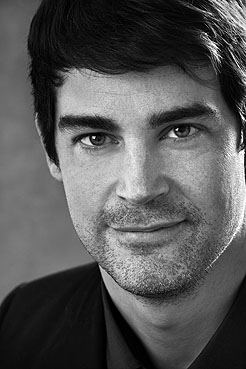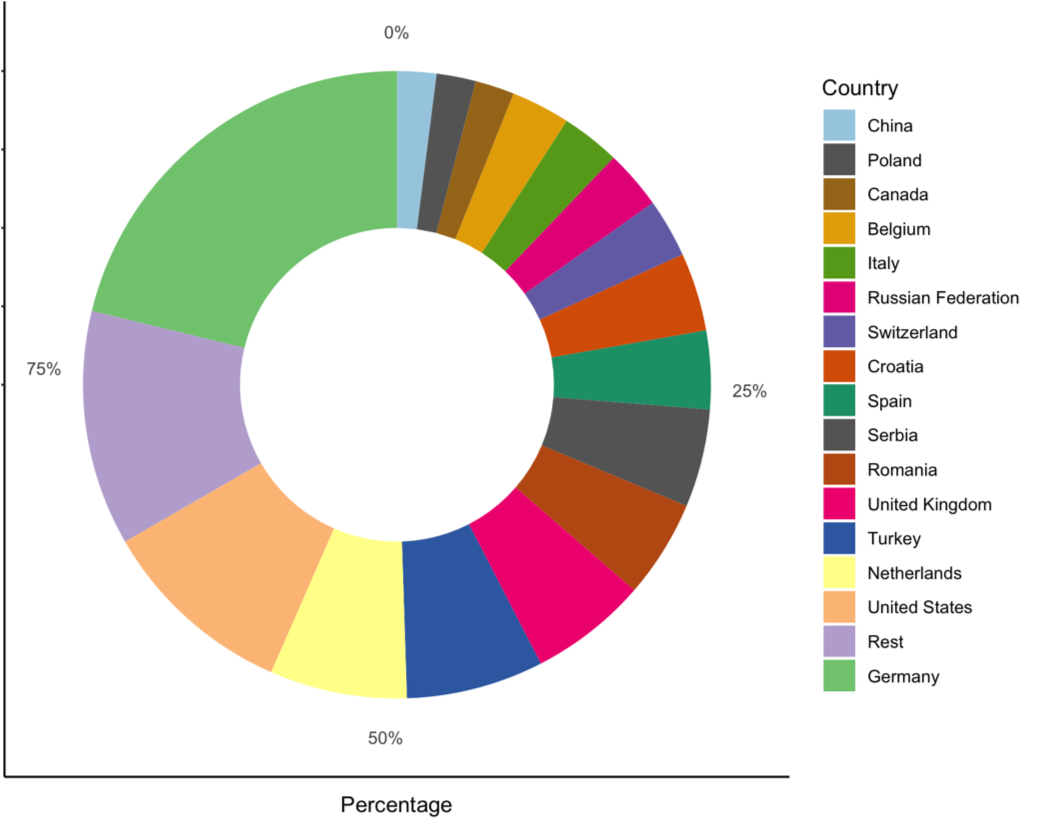European Association of Personality Psychology, President's Report
Jaap Denissen
Tilburg University

My last contribution to the ARP newsletter was published in April 2019. After a year, it's time to look back on the most important EAPP developments of the past year. If you're short on time, here's the one-paragraph summary: a) due to the COVID-19 crisis, we had to cancel our ECP conference in Madrid (July 14-17) and will instead organize it in 2022; b) the European Journal of Personality consolidated its top impact factor and is rated as leading in promoting research transparency and openness; c) in partnership with ZPID, EAPP will launch a fully open access journal: Personality Science; d) EAPP has grown its membership and is becoming more regionally diverse; e) EAPP has introduced new awards, like an EASP-EAPP award, a dissertation award, and a lifetime service award; and f) EAPP has successfully implemented a new, simplified and cheaper fee structure.
20th European Conference of Personality in Madrid Cancelled
For much of the past months, we were enthusiastically gearing up preparations for our much-anticipated 20th European Conference of Personality in the Spanish capital of Madrid, in July 14-17 2020. With a strong line-up of keynote speakers and invited symposia, and a large number of submissions from all over the world, we were looking forward to meeting old friends and discussing cutting-edge research. Then, the Covid-19 virus struck humanity and caused disruption and suffering across the world. Based on careful (and painful) deliberations, also with our local organizing team (Prof. Oscar Garcia, supported by Prof. Gerardo Bielons and his company), EAPP decided that it was no longer possible nor desirable to host the conference this summer. We will reimburse all participants who already paid the conference fee. Provided that the public health circumstances allow it, ECP20 will still take place in Madrid, but postponed to 2022.
TOP Position for the European Journal of Personality
The European Journal of Personality has been a flagship journal of EAPP for years. It has secured a top reputation in the field, which is reflected in a consistently strong impact factor (in 2018, the two-year impact factor was 3.3 and the five-year impact factor was 4.62). But impact factors are not everything, so we are happy to announce that EJP obtained a top position in the recently published TOP Factor rankings (topfactor.org). This ranking is based on journals’ compliance with the Transparency and Openness Promotion (TOP) guidelines. EAPP has obtained a shared fourth place (together with Collabra) among a total of 277 journals from various disciplines. We are incredibly proud of this achievement, which has been achieved by the hard work of the editorial team, led by Mitja Back. It is one of the many achievements that Mitja can look back on with satisfaction when he transfers the position of main editor to René Mõttus in the summer of 2020.
EAPP Launches a Fully Open-Access Journal: Personality Science
The European Association of Personality Psychology (EAPP) is launching a new journal this year: Personality Science (PS), edited by John Rauthmann. PS will be online-only, full open-access, with no article processing charges for authors, and dedicated to open and good science practices (e.g., offering registered reports with in-principle acceptances). All of this is possible because it will be published under the PsychOpen GOLD program of the Leibniz Institute for Psychology Information (ZPID). PS is dedicated to topical breadth and diversity and aims at bringing together researchers interested in personality science (broadly construed). The journal’s vision encompasses three goals: (1) being more multidisciplinary in scope than comparable journals; (2) including papers that concern how personality science can inform public interest and applied practice; and (3) seeking high-quality publications from authors around the globe. More information on PS can be found here which will be periodically updated. Our goal is to launch the journal officially this year. We will let you know about important developments via EAPP’s Twitter channel (@personalityEAPP).
Growth and Diversification
The European Association of Personality Psychology (EAPP) is growing its membership, and growth is expected to increase as we move towards the European Conference of Personality in Madrid, July 14-17. In the last newsletter, it was announced that EAPP would reach out to underrepresented countries. We have done so with much success: Our Turkish membership is now our fourth-largest, and we have also established substantial membership bases in Serbia, the Russian Federation, and China. Equally pleasing, many new members are early career researchers, defined by us as PhD students or individuals within five years of the award of their PhD degree. No less than 44% of our current members belong to this category, which (together with the passion and experience of the more senior members) constitute the future of our association.

New Awards for Dissertations, Social-Personality Integration, and Leadership/Service
EAPP now offers a comprehensive award structure, with three newly established awards. First, we have installed a Dissertation Award to promote up to two excellent dissertations within personality psychology to increase the visibility of outstanding young personality psychologists both to the scientific community as well as to the general public. Second, we have partnered with EASP to create a joint award honoring European researchers who study phenomena at the crossroads of personality and social psychology and who have greatly contributed to both fields. Third, our new Leadership and Service Award honors outstanding researchers who have had had with their dedication, service, and leadership a significant and profound impact on the field of personality psychology. We will release a call for all EAPP awards (including the early-career, mid-career, and lifetime achievement awards) soon, and nominations can be submitted until March 30.
A final note for non-European readers: The calls are aimed for a “contribution to personality psychology in Europe”, but this does not necessarily imply a European affiliation. It can indicate a number of things, such as regular visits to ECP, guest lectures at European universities, creation of consortia with a prominent role for European researchers, research visits in Europe, etc.
New Fee Structure
EAPP introduced a novel, simplified membership structure with a reduced category for (PhD) students and members from low and middle income countries as well as a regular category for everyone else. Instead of a one-year membership, we now offer only two-year memberships. The two-year membership fee for regular members is 60 €, the reduced fee is 20 €. Becoming a member comes with a range of attractive benefits, which are described here.
Note that people from all countries in the world can become members, and fees can be paid in any currency via credit card. By (re-)joining us as a member, you save 40-50 € in the registration fee for our upcoming European Conference of Personality. In our drive to diversify membership, we are also offering a free membership to members with an affiliation in a country with a low- or middle-income economy. This offer is limited to 2020, so spread the word!
This newsletter contribution will be my last as President of EAPP. In Madrid, Anu Realo will take over my position, so she will likely be the author of the next EAPP newsletter.
Prof. Jaap Denissen, EAPP President